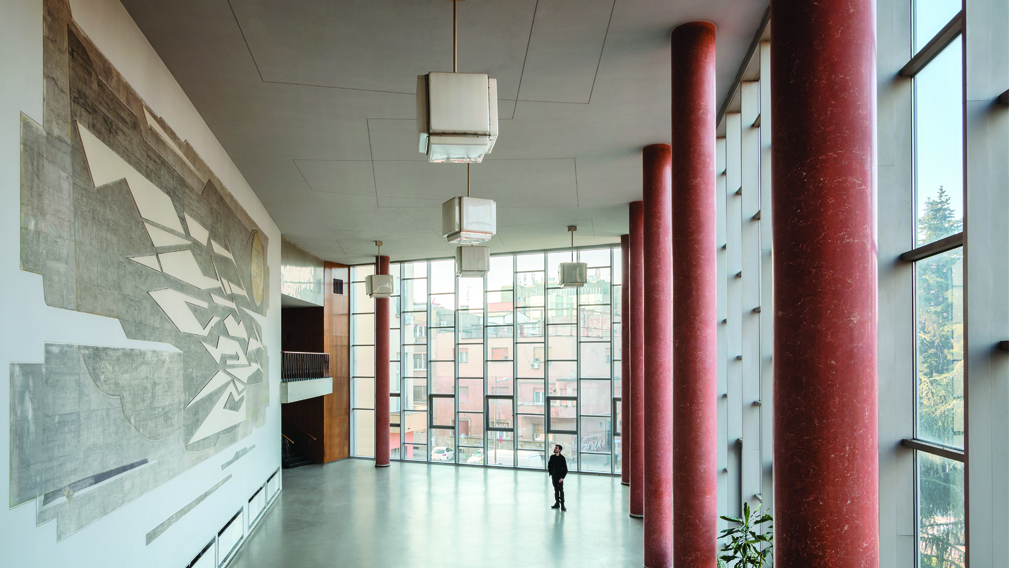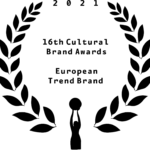Modern schools, universities, city assemblies, churches, department stores and residential complexes built after the World War I testify to a period of progress throughout Europe, as well as the decades that followed. The topic of the first lecture that will be held within the ‘Future of Europe’ platform is how our history is carved in architecture, how it fits into modern times and what influence it has within.
The lecture will be held in the Svilara Cultural Station on 20 May at 6 p.m. and it will commemorate 100 years of Bauhaus, the German architectural movement. Tim Rieniets, an expert in researching contemporary problems in architecture and urban development, who is also a professor of urban and spatial development at the University of Leibniz in Hannover, will hold the lecture.
After the lecture, the ‘Preservation and Renovation: Bauhaus and the Buildings of International Style in Tel Aviv’ exhibition about the so-called ‘White City’, which has more buildings in the Bauhaus style (4.000 objects) than all the cities around the world, and most of them are in the UNESCO Intangible Cultural Heritage Lists, will be opened at 7:30 p.m. The exhibition will be opened until 26 May.
The lecture of the same name will be held in the Egység Cultural Station, where professor Micha Gross, who leads the Bauhaus Centre in Tel Aviv, will talk about the characteristics and urban plan of that city, as well as renovation and protection of architectural heritage. The lecture will be held on 17 May at 6 p.m.
‘Heritage Walks’ in a Different Way
How the Bauhaus movement influenced the modernism of Novi Sad and on which buildings outlines of this movement can be seen, will be presented through well-known ‘Heritage Walks’, which are part of the ‘Novi Sad 2021 – European Capital of Culture’ project.
The first walk is scheduled for 24 May at 5 p.m., when the Assembly of the Autonomous Province of Vojvodina will open its door for the first time to the citizens, who will learn about modernistic heritage. All interested can apply here. The walk will be repeated on 31 May at 4 p.m.
The Faculty of Philosophy, one of the two oldest faculties in Novi Sad, which exists for more than six decades, and the Sports Business Centre of Vojvodina (SPENS) opened in 1981 for the World Championship in Table Tennis are facilities that will be covered by the ‘Heritage Walk’ on 25 May. The walk starts from the plateau of SPENS at 12 p.m.
All other walks will start from the Liberty Square at 12 p.m.
The new route on 26 May will lead to the Labour Union, built almost 90 years ago, which at the time was an example of modern architecture and the Museum of Contemporary Art of Vojvodina, which, although exists since 1966, got its premises in 2012 in the building of the former Museum of Socialist Revolution.
The following weekend brings the new route, thus the citizens will have a chance to visit the Studio M, which exists for more than half a century and where, at the time of Yugoslavia, all famous musicians performed. The same day, the walk leads to the Gymnastics Centre, built in 1936, whose Society has existed for more than one hundred years and was the most massive and strongest organisation for physical culture and sport, in which the Youth Theatre, as the former Puppet Theatre was founded in 1932.
On Sunday, 2 June, a tour of the Memorial Collection of Pavle Beljanski is planned, where architecture is intertwined with modern rustic type of construction, as well as Start It Centre, a place for education, inspiration and cooperation for the IT sector, whose spacious premises could be used for various purposes.
Applications for walks on 25 and 26 My, as well as those on 1 and 2 June are on the following link. The walks will be guided by students of architecture, except for the Assembly of AP of Vojvodina, which will be guided by curators. The students of architecture will organise workshops to present key objects of the process of modernisation of Novi Sad.
The whole project is being implemented in cooperation with the Association of Architects of Novi Sad, the Goethe Institute and the Embassy of Israel.
The ‘Future of Europe’ platform will include educative and circus workshops, exhibitions, festivals, concerts, theatre plays and many other activities. The focus is on children and young fellow citizens, who will have the opportunity to find cultural content according to their interests, but also to engage in creating new, different cultural contents, to learn about European values and to show how they can contribute to cultural image of the city. More than 40 local and foreign organisations and cultural institutions are involved in the ‘Future of Europe’ platform. Programmes will last until 7 June, and detailed information can be found here.



